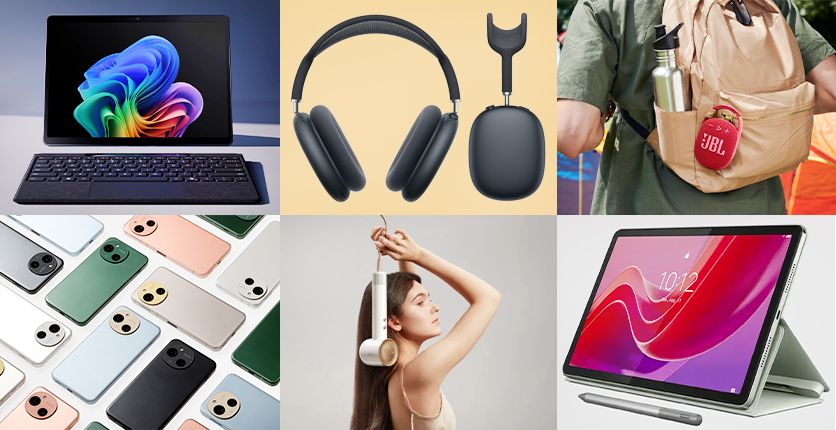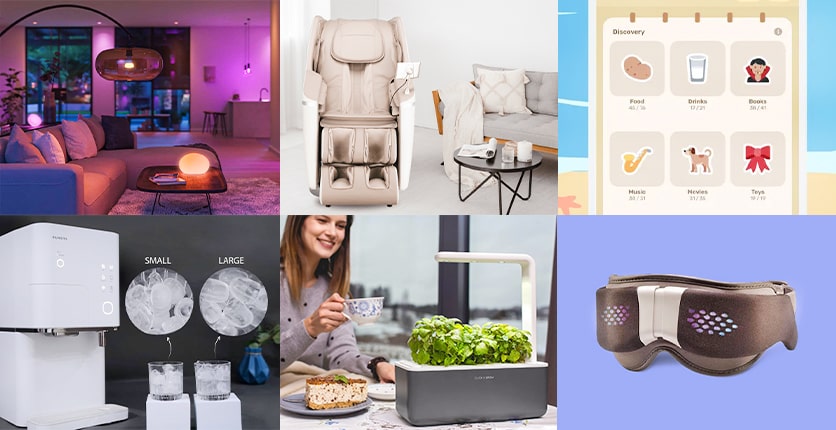Many of us have experienced “tech neck”, “trigger finger”, a sore back, eye strain, cubital tunnel syndrome, and carpal tunnel syndrome – all problems caused or compounded by using our tech devices for extended periods and poor or incorrect posture while using them.
Unfortunately, the longer these issues go on for, the worse your overall health may be affected. In the long-term, they may result in problems like dry eyes, jaw pain, poor blood circulation, sleep disorders, tingling and numbness, nerve pain or damage, muscle spasms, dizziness, reduced mobility, and even physical disability.
Don’t wait for these minor aches and pains to get worse before doing something about them. Here are tips to prevent and address them, from both a Western medical and a Traditional Chinese Medicine (TCM) perspective.
1. Be mindful of your posture
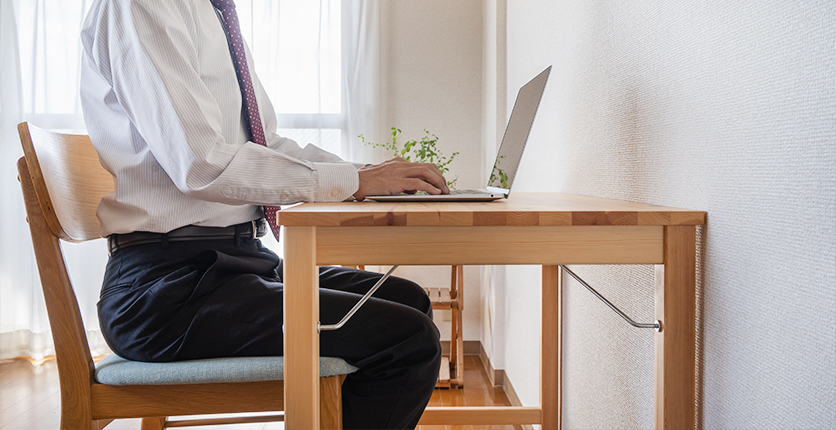
Ensure good posture when using your tech gadgets, says Liu Jiageng, Senior Physiotherapist at Raffles Rehabilitation Centre.
Keep your working environment – that is, your desktop and chair – ergonomically friendly. Here’s what to look out for:
- The height of your chair: Raise your chair and allow your feet to rest flat on the floor. Your thighs should be parallel to the floor, and your hips, level with your knees.
- The height of your desk: Adjust your desk height so that your forearms are parallel to the floor and your wrists are in a neutral position.
- The placement of your monitor: Position your monitor such that the top of the screen is at or slightly below eye level. This helps to reduce neck and eye strain.
You should also vary your working posture, Jiageng adds. This means avoiding being in a prolonged static position. Change your posture from time to time to allow the different groups of muscles to rest. You should also alternate between sitting and standing at your desk.
2. Stretch out and take breaks
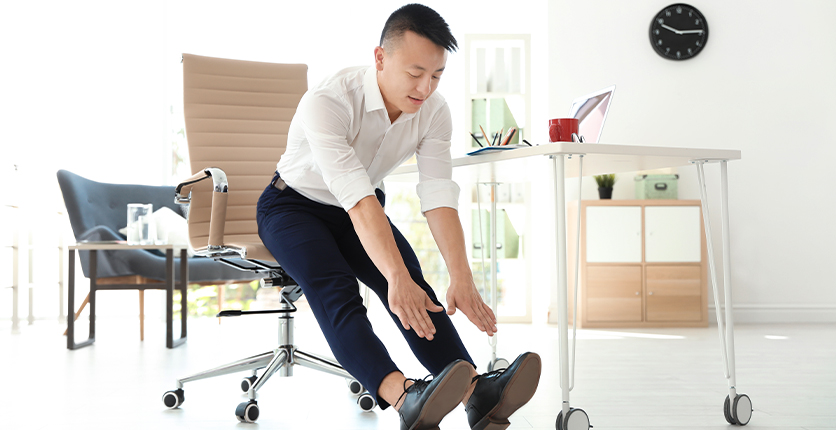
“Do simple neck and back stretches every one to two hours to prevent your muscles from getting tight and sore, which can lead to physical fatigue,” says Jiageng.
“Remember to also take breaks while working to look away from your screen and focus on greenery or faraway objects.”
3. Protect your eyes

To prevent eye strain and headaches from prolonged gadget use, Jiageng says to adjust the lighting in your work area and to control the brightness of your device. In particular, you should:
- Ensure your source of light is not shining directly on your face or the computer monitor.
- Tilt the screen slightly to avoid reflections or glare.
- Ensure your computer monitor is at least an arm’s length from your face.
- Reduce the contrast and brightness of the screen.
- Ensure your screen or glasses have anti blue light filter.
4. Exercise regularly to keep your muscles and joints healthy

As we age, the cartilage between our joints breaks down, our bones become brittle, and we lose muscle mass, which in turn place extra stress on our musculoskeletal system, Jiageng says. This increases our risk of developing health problems associated with the frequent use of our gadgets.
“Our joints need movement, our muscles need activation, and our blood needs circulation,” he adds.
“The Health Promotion Board recommends 150 to 300 minutes of moderate intensity aerobic activity per week – that works out to about 20 to 30 minutes of exercise daily.”
He explains that exercising can prevent many age-related changes to our muscles, bones and joints. It also prevents deconditioning from occurring, increases bone strength and slows the rate of bone loss, increases muscle mass and strength, improves balance and coordination, and maintains joint flexibility (especially when we do stretching exercises).
TCM also advocates regular physical activity and a healthy lifestyle overall.
“The use of technological gadgets for long hours, and often without a break, is not in tune with TCM principles for well-being and health,” says Tan Weii Zhu, TCM Physician at Raffles Chinese Medicine.
“First, the constant mental focus when using such gadgets saps energy (Qi), especially if there are emotional ups and downs during the process – such as if you are playing games or having a stressful online meeting, for instance. This may lead to fatigue and decreased concentration, as well as tension in the body.
“In turn, you may experience mental health symptoms like anxiety and/or depression and sleeping disorders. Constant physical inactivity as a result of prolonged sitting, or worse, prolonged lounging, may slow down blood circulation in your body and lead to physical symptoms such as bad posture, pain, and decreased mobility in the long run.
“Staring at the screen for long hours without rest can also be detrimental to your eyes, causing them to feel dry and tired. It may even worsen your eyesight.”
5. Try TCM treatments to manage symptoms

According to Weii Zhu, symptoms like muscular pain, fatigue, decreased concentration, sleeping disorders, anxiety and depression, and tired and dry eyes can be treated with TCM treatments.
“Herbal medication can be customised to an individual’s constitution and targeted to treat these symptoms. Acupuncture and cupping are frequently used to improve blood circulation for the relief of tech-related pain issues. Acupuncture is also good for relieving discomfort in the eyes to calm the mind and promote better sleep.”
6. Live a balanced lifestyle
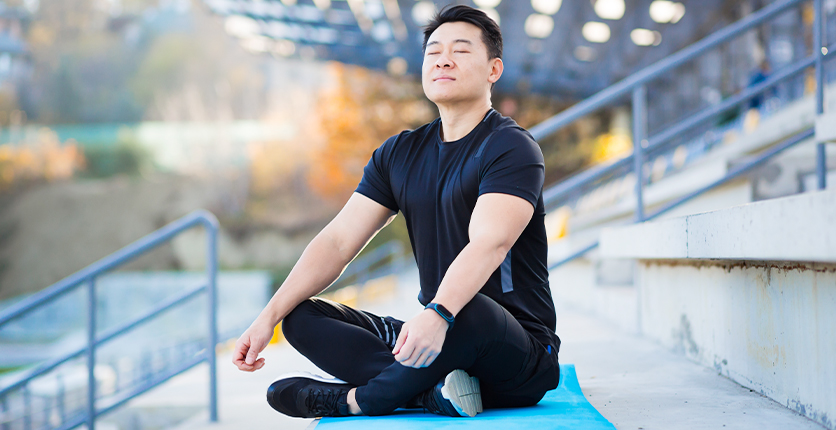
TCM stresses the importance of balance in our daily activities. This, says Weii Zhu, is essential to our general health and wellbeing.
“You should be neither wholly sedentary nor overly strenuous. This applies to both your physical and mental health. Try to limit the use of your devices as much as possible. Take frequent breaks to rest your mind and stretch your physical body. And engage in physical activity such as walking or yoga to improve blood circulation in your body. This reduces the damage caused by prolonged sitting or lounging.”
Note: Please consult your GP or physician on managing your tech-related symptoms.
SAFRA members enjoy member rates on health screenings at Raffles Medical clinics. For more details, click here.
For the full list of healthcare benefits, go to safra.sg/promotions/
Want more articles like this, and other lifestyle content right in your inbox? Download the new SAFRA mobile app and opt in for the eNSman Newsletter – you don’t need to be a SAFRA member to subscribe – and never miss another story!





